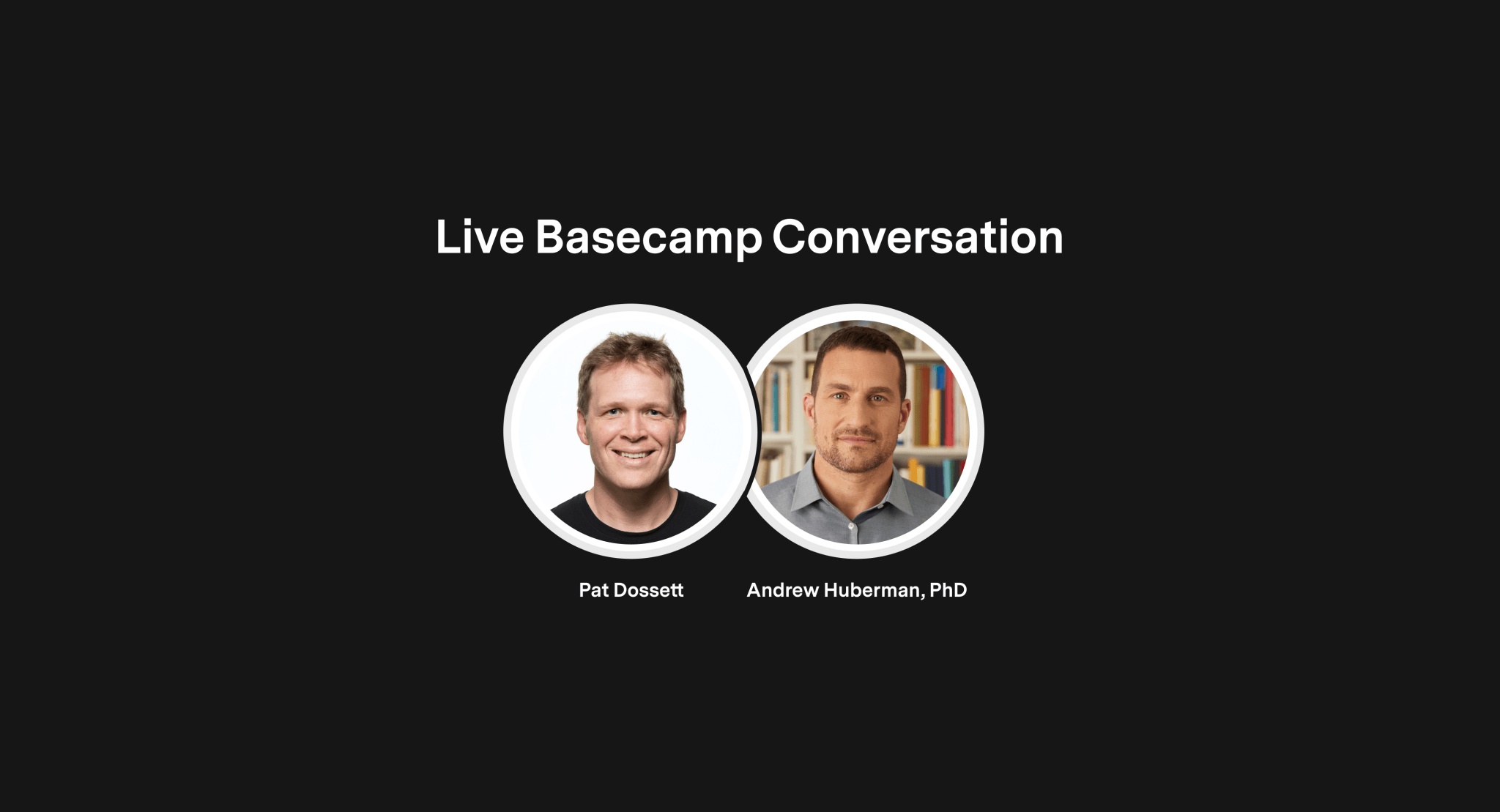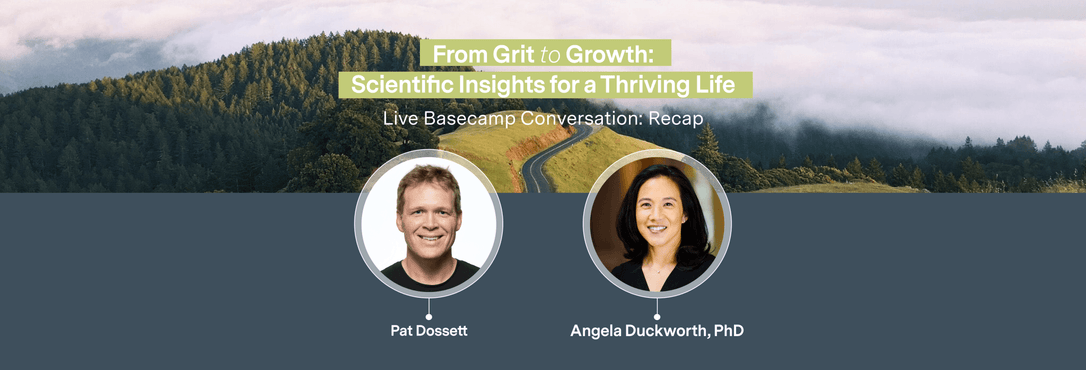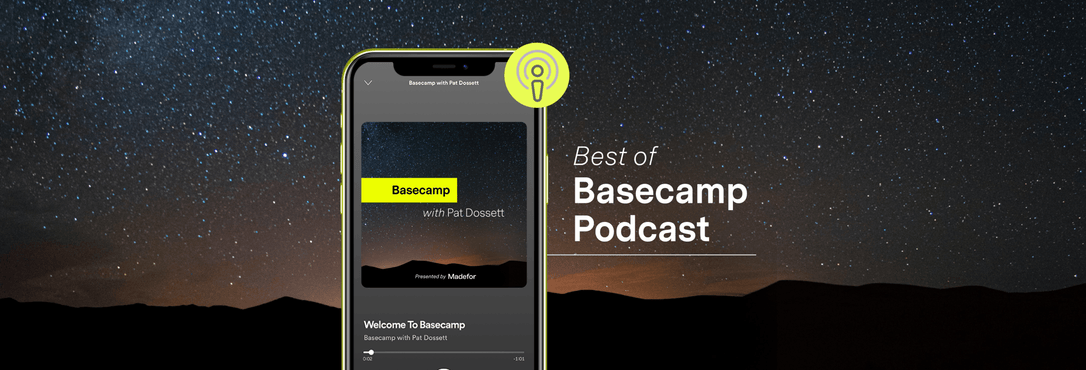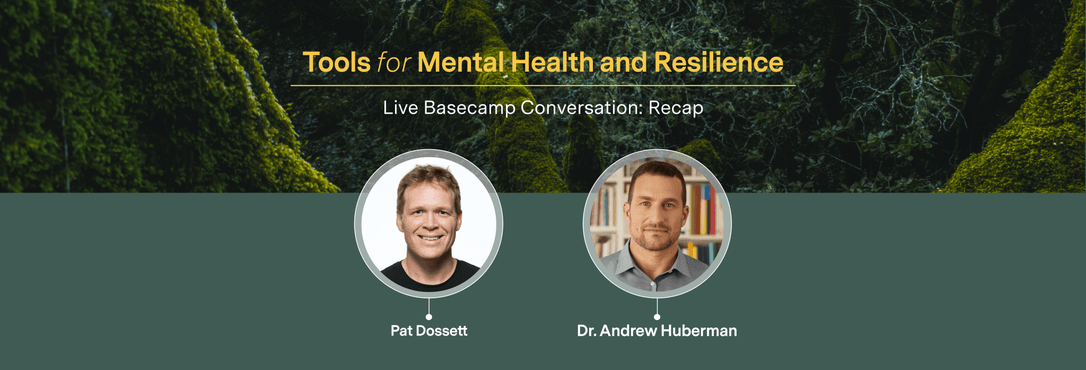In this month’s Basecamp, we tackled the question, “How can we make transitions easier?” Without a doubt, this is a question that resonates with us all very deeply in the very transitional moments we are all experiencing right now. “How do I get back to life, to school, to work?” “Why do I feel anxious about it?” “Where will I go from here?” “What’s going to happen to XYZ?” All good questions that are critical to smooth transitions. Wait, we forgot one: ”Who will help me figure out a way to make all these transitions?” Answer: We will!
The Science of the Matter: Limited by Question Underload
The brain is a prediction machine. It is constantly running hypotheses in search of evidence that either validates or violates those hypotheses. A hypothesis is a statement made based on limited evidence as a starting point for further investigation. We ask questions to either prove or disprove a hypothesis. Our brains, in concert with our nervous systems, are constantly running hypotheses about what to expect in every given situation without us even knowing it. Sound like a lot of brain-cardio? It sure is, but let's not forget about the nervous system which cues the difference between our expectation and reality, which then creates a release of molecules that heighten our state of alertness that may create stress and anxiety. Hypotheses are always running, so it's very consuming for both the brain and nervous system.
The outcomes of the hypotheses are deeply embedded in our neurology, and they are fundamental to our relationship with the world, others, and ourselves. However, they create expectations over time that can be: dark, seeing the world as a punishing place or believing relationships will always eventually end; neutral, you aren't concerned with those things you already know how to do; and light, positive. When we get stuck in our expectations, or rigid mindset, we tend to make the same choices and perform the same behaviors, which can be challenging in its own right, but even more so when we try to make transitions. It can stick us in a rut or cause us to feel disappointment and stress when things don't go the way 'we think they should.' Instead, we need to cultivate a stance of curiosity or stance of flexibility. Doing this puts us in greater control both internally and externally.
“When something doesn’t meet your expectation or you feel annoyed or frustrated – that’s the time to cue up curiosity.”
We miss out on other options which arise from being curious when our mindset is constrained by our expectations. Expectations are not always negative, they are positive a fair amount too! Think about it like this, you love coffee and that's all you pour or order in the morning. If you stick with your morning beverage expectations, you could be missing out on a seasonal latte, a blended coffee, or even an exotic tea. When you inhabit a creative stance, your options expand, and your brain presents you with a few options you may enjoy. So the next time the person ahead of you in line at Starbucks is taking too long to order, use it to be curious. You may conjure a hypothesis that the person in front of you may be in their curious mindset as they make their decision. Can you see why a curious brain may help with transitions, whereas a rigid brain could hinder success? A curious mindset also lightens the load for your overworked brain and nervous system and has been linked to longevity and decreased cognitive decline among other benefits.
At Play in the World: The ROC Drill
Transition can cause anxiety and stress. To reduce that, you can anticipate what may happen by cultivating curiosity. Pat relayed how the Navy SEALs prepare for a mission by running a ROC (Rehearsal of Contingencies) drill. He’s quick to point out that the SEALs aren’t the only ones who do it – other military, C-Suiters at companies, and even yourself do it all the time. How do you do it? You simply start tallying up available options by saying/thinking, “If this happens, then we will do that" and seeing what comes up. Be sure to genuinely ask the questions like a scientist, not just as a way to prove your hypothesis. By running this drill, you reduce your cognitive load and better prepare your mind and body for the experience when it comes.
“Curiosity brings you closer in relation to the world so that you can make better decisions and increase the range of tools in your toolkit.”
Cultivating a Curious Mind: Action Steps
Information is great, but it's only powerful when you put it into action, right? Here are Pat's three action steps to help you cultivate a curious brain – starting now!
- Reflect - At some point this weekend, take a moment to reflect on a transition you're currently going through or will go through soon. Think about how you can lean into it with a greater sense of curiosity and wonder. What questions can you ask? Write them down if you don't have time to consider the options, and then block another bit of time on your calendar to get answers.
- ROC Drill - If you find yourself getting anxious about an upcoming transition, run a ROC drill (no Covert Ops experience needed). Pat explains more about how to run a ROC Drill here.
- Reframe - Look outside yourself and apply this information to someone else, such as a rigid family member or someone you've seen respond to a situation in a way that seems out of sorts. Except think about their action(s) through the lens of hypothesis testing. What about their actions are challenging or violating your pre-tested hypotheses for behavior? This may cause you to cultivate empathy and understanding and better respond to that person.
Good luck with your transitions, especially as so much is changing in all our daily lives as a result of the changing pandemic restrictions. Embrace these changes by making cultivating curiosity a new habit when and where you can.
💡 Bonus tip: check out our Basecamp Podcast featuring Dr. Andrew Huberman on How to Create Lasting Change.



